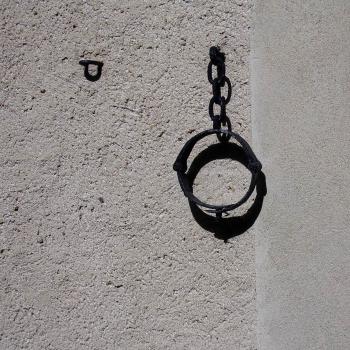Sadly, missionary John Chau’s death to the North Sentinelese people will set back the effort to mobilize missionaries. That’s not entirely John Chau’s fault. It’s one natural consequence of “outcome bias.”

Outcome Bias is a Plague among Missionaries
Everyone who hears about John Chau’s fateful trip to North Sentinel Island has an opinion. The range of reactions is predictable. Rather than ascribe praise or blame to Chau’s efforts, let’s consider what we can learn and identify potential confusion that surrounds his story.
To begin, we mustn’t confuse result with readiness. This would be to commit outcome bias. Rolf Dobelli explains,
“Never judge a decision purely by its result, especially when randomness and “external factors” play a role. A bad result does not automatically indicate a bad decision and vice versa.”
Outcome bias works both ways, whereby good results “validate” bad processes and bad results mask good processes. This fallacy produces an industry of evangelistic books based not on the Bible but on “reverse engineering” results, a scourge to missions strategy. By comparison, if we were to yield to outcome bias, military special operations would never occur. Some actions are inherently dangerous.
As I’ll explain, I don’t think John Chau was ready to go to the island. But it is not because he was killed. Even had he survived for a week or longer, we could hardly call his decision “wise.” When discussing John Chau, we need to start with this in mind.
(To be intellectually honest, those who are most against Chau’s going must ask themselves what criteria should be satisfied before someone would be “ready.”)
An Obstacle to Mobilizing Missionaries
I am not concerned with the negative judgment of non-Christians who condemn Chau’s attempt to evangelize the North Sentinelese. I grieve for the negative ripple within the church. Fear and doubt will fester in parents and churches, who are convicted of the importance of missions yet are equally convinced that they and their loved one are not called to such work.
Christian parents are often the greatest obstacle to people serving as missionaries. In their minds, Chau’s death confirms their worst suspicions. This is a result of outcome bias.
When this fear strangles the faith of churches, some mission agencies will likely overreact in an effort to minimize risk… as if it could be eliminated. Let’s be honest, in our ever-litigious world, some mission agencies will be just as concerned about potential legal liability.
One has to ask oneself, “Are we not people who believe in the resurrection?”
Confusion Has Consequences
The hubbub about Chau exposes afresh several points of confusion and compromise.
-
We should not confuse sincerity and skill.
Sincere love and pure intentions do not replace the need to possess practical skills. This is obvious enough when one considers the problem with asking an untrained person to do surgery on us.
-
We ought not to confuse passion and preparation.
Christians, and missionaries in particular, are prone to emphasize the need for a right heart at the expense of other matters. This is particularly true when selecting people for leadership positions. If not careful, this narrow perspective will manifest into only picking “yes men” since they will appear to be people after God’s heart.
The dichotomy between passion and preparation need not exist. In reality, passion ought to be the fuel that produces patience.
-
Do not confuse faith and foolishness.
Of course, non-believers will regard any act of faith as foolishness. I do not refer to the standards of the world. Biblically speaking, faith is more than a mere belief that God might or could do this or that.
Though God could have readied the Corinthians without Paul’s prompting, Paul still writes them in order to prepare them to give funds to help the Jerusalem church.
“But I am sending the brothers so that our boasting about you may not prove empty in this matter, so that you may be ready, as I said you would be. 4 Otherwise, if some Macedonians come with me and find that you are not ready, we would be humiliated—to say nothing of you—for being so confident. 5 So I thought it necessary to urge the brothers to go on ahead to you and arrange in advance for the gift you have promised, so that it may be ready as a willing gift, not as an exaction.” (2 Corinthians 9:3–5)
Similar, Paul’s letter to the Romans prepares them to receive and assist Paul on his way to Spain.
We might even use “faith” as an excuse for foolishness. Consider Matthew 25:24–27. The wicked servant had “faith” (so-called) to admit to his master,
“I knew you to be a hard man, reaping where you did not sow, and gathering where you scattered no seed, so I was afraid, and I went and hid your talent in the ground. Here, you have what is yours.’”
Yet, his master rebuked him,
“You wicked and slothful servant! You knew that I reap where I have not sown and gather where I scattered no seed? Then you ought to have invested my money with the bankers, and at my coming I should have received what was my own with interest.”
-
Do not confuse being naïve and being noble.
Certainly, one could be ill-informed and still act nobly. I refer to a more negligent, even willful, form of naivety. A person is noble when they act out of convictions, yet it is even nobler for that person to seek wisdom. When the costs are high, insight is prized over impulsivity.
In the next post,
- I’ll explain another systemic problem that results from the above confusions.
- I’ll also share a few recommendations for someone, like John Chau, who wants to reach the North Sentinelese people.












